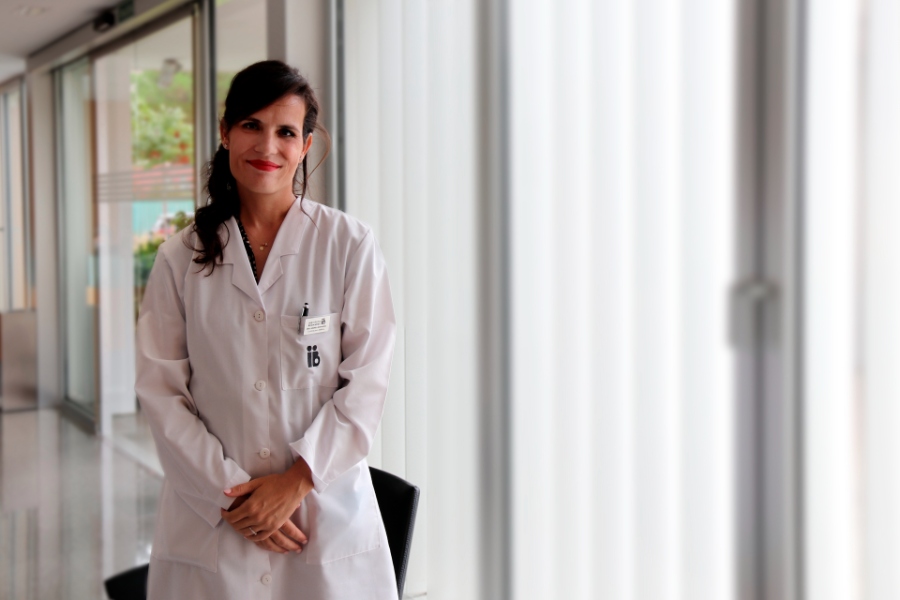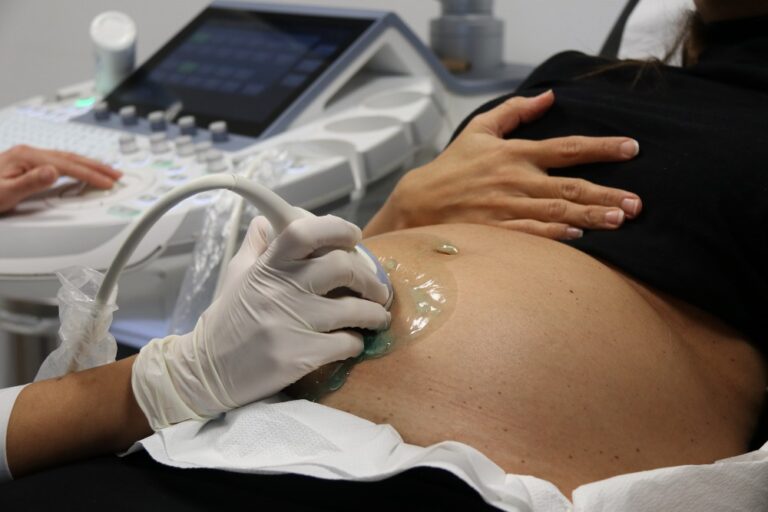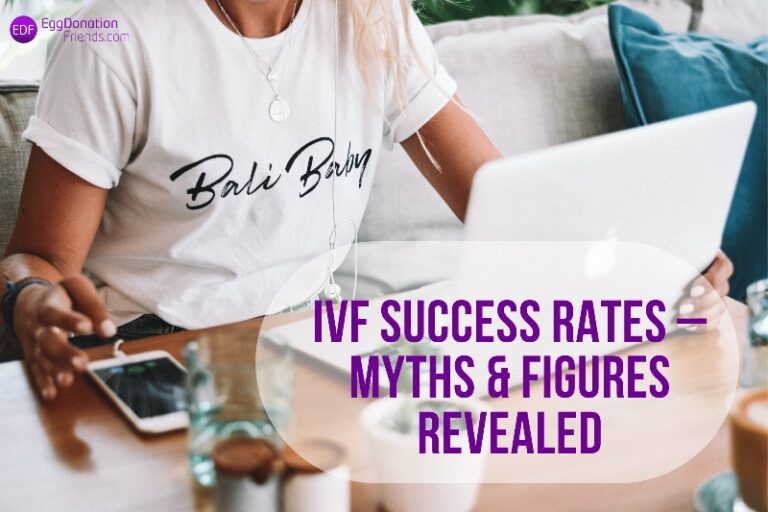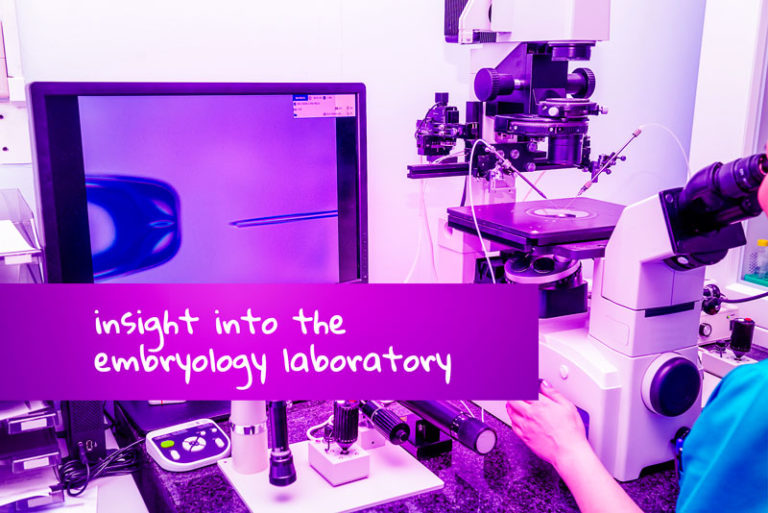“It is essential for us to understand patients in their mother tongue in order to provide them with personal and professional support throughout their treatment”
Below you can read the interview with dr Andrea Bernabeu who is a Medical Co-Director at Instituto Bernabeu since 2018. Dr Andrea received an FRM (American Foundation for Reproductive Medicine) Young Investigator Award in 2017 and has been an ESHRE Reproductive Medicine Fellow since 2016. Dr Bernabeu has been a Chair of Reproductive and Community Medicine University and Associate Professor, Miguel Hernández University (UMH), Alicante, since 2016.
Andrea, can you tell us why patients from abroad should consider Spain as a destination for their fertility treatment?
There are many reasons to consider Spain when thinking about assisted reproduction treatment. It should be noted that in our country we are pioneers in this medical science and we could say we are at the forefront of research and clinical practice, which has allowed us to offer solutions that others cannot. On the other hand, we have an advanced Assisted Reproduction Law which allows us to treat clinical cases not contemplated in other countries.
Instituto Bernabeu was established in the early 1980s. What aspects of the clinic’s medical and embryology background would you highlight?
Doctor Rafael Bernabeu founded the Instituto Bernabeu in 1984 and, for all of us who form part of his team, it is with pride that we day, to this day, the values that made us pioneers continue to be valid. We are an institution run exclusively by doctors, where patients are our absolute priority. Our group devotes many hours to scientific research and innovation. Our results, and our success rates, are the reward for scientific and medical efforts. We are pleased to be an international benchmark and to serve patients from all over the world. In fact, our team is the architect of the birth of the first child in Spain, and the sixth in the world, using spermatids, the spermatozoa precursor cells. We have also made possible the birth worldwide of a girl free of hereditary blindness and the birth of the world’s first baby free of Marfan syndrome. Contributing to the advancement of reproductive medicine and being a reference point makes us feel enormously grateful and very responsible for what we do.
What are your main areas of expertise in reproductive medicine?
Infertility sets us out with daily challenges we must overcome with a multidisciplinary approach. In addition to a team of highly prestigious gynaecologists, we have leading biologists in the field of embryology and molecular genetics. We have specific treatment units in which we are a European benchmark, such as those related to embryo implantation failure and repeated miscarriage and low ovarian response. We also have units specialising in endometriosis, infertility due to obesity, immunology, and genetic and reproductive counselling. We have our own oocyte bank, where the entire donor selection process is carried out by our clinical team, ensuring maximum quality, results and respect for the gamete donation process.
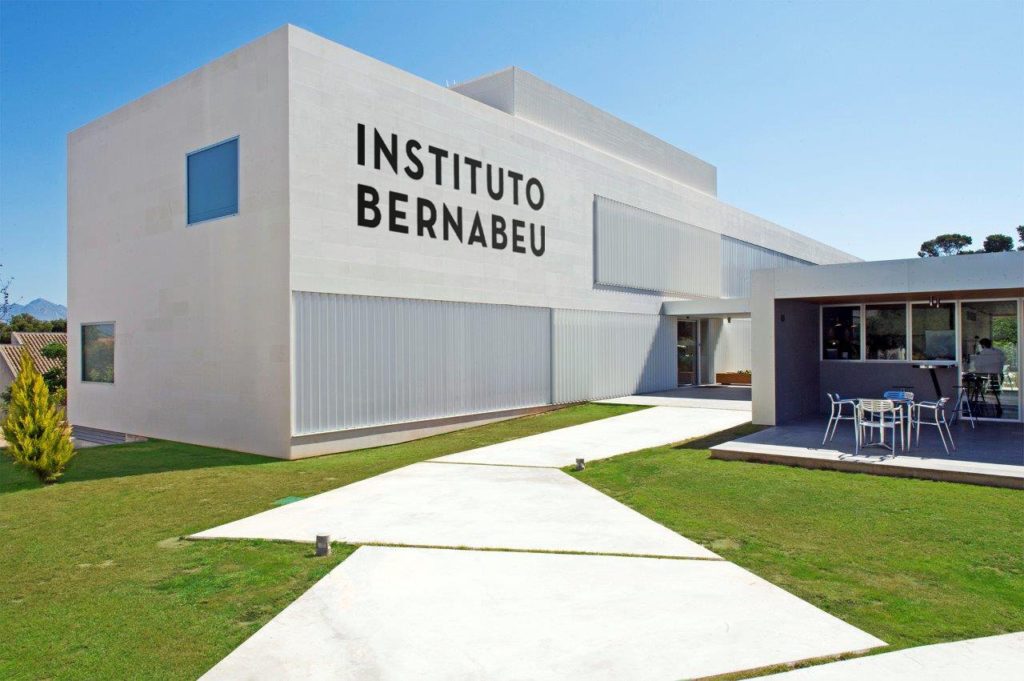
We know from our experience that one of the reasons many couples avoid going abroad for IVF is the language barrier. Do your staff speak English and/or other languages?
For us, it is essential to attend to our patients in their mother tongue, in order to provide them with greater support, both professional and personal, throughout their treatment. Our international projection over the years has allowed us to have highly qualified staff, with medical professionals and personal assistants who can communicate fluently in English, Italian, German, French, Russian, Norwegian, Dutch and Arabic, among others.
Is your clinic obliged to report results and success rates to a national “IVF monitoring organisation”? Where and how can a patient verify if your clinic is fully accredited and regulated before deciding to do the treatment at Instituto Bernabeu?
Every year, Instituto Bernabeu voluntarily provides data to the official registry of activity of the Spanish Fertility Society (SEF) for the Spanish Ministry of Health, Consumption and Social Welfare, and we have been doing so since 2000. This registry covers all assisted reproduction techniques developed in Spain and includes the results of IVF, ICSI and artificial insemination. In addition, our data is audited by the external companies Applus® and Instituto Fidelitas.
What is the maximum age for IVF treatment in your clinic (own eggs and donor eggs)?
The maximum age limit is agreed upon at a national level and we do not perform treatments on patients over 50 years of age. In relation to assisted reproduction treatments with own gametes, we assess each clinical case individually and discuss with the patient the probabilities of success, as well as the pros and cons and the associated treatment risks in each case.
Can you tell us about the donor egg recipient qualification process and which patients cannot be accepted for egg donation treatment? Are there any limitations other than the patient’s age?
We always carefully assess each case. Egg donation is used when the patient cannot use her own oocytes because genetic alterations have been detected and could be inherited by the future baby; because of poor egg quality; because the patient has a low ovarian reserve, or suffers from early menopause; also when the patient has lost ovarian function due to cancer treatment or has no ovaries. Among others, in order to carry out egg donation, the patient’s endometrium must be optimal and the embryo must be able to implant. The main limitation of egg donation treatment is age and it is not performed on women over 50 years of age.
What kind of egg donors are available in your clinic (phenotype)?
Spanish law and our own quality standards oblige us to be very exhaustive. We exclusively assign a compatible donor to each patient, ensuring the greatest phenotypic resemblance between the two. We must take into account that legislation prevents us from knowing the parents and donors’ identity. In Spain, donation is altruistic and anonymous. At Instituto Bernabeu, the majority phenotype is of Caucasian origin along with people of other ethnicities.
What is your protocol for patients with multiple IVF failures and are they treated differently?
At Instituto Bernabeu, each patient is unique and so is their treatment. We cannot establish single prescriptions. We must be honest and realistic. Each patient deserves an individualised diagnosis and treatment and our responsibility is to find the answers each case requires. The fact that we have specific treatment units and that we conceive reproductive medicine from a multidisciplinary point of view allows us to study the most complex cases in depth in order to find the solution. In the case of patients with multiple IVF failures, personalised approaches are established, evaluating the individual case by our medical committee, made up of gynaecologists specialising in reproductive medicine and doctors in embryology and genetics. These more complex cases are evaluated individually by our Medical Committee, made up of gynaecologists and embryologists.
Do you consider egg donation to be the best alternative for patients aged 38-40, and do many patients in this age group seek treatment with their own oocytes?
Between the ages of 38 and 40, the ovarian reserve, the eggs’ quality and quantity, begins to diminish, which is why becoming a mother with donated oocytes is one of the possibilities to be considered, but it is not the only one. As we mentioned, our priority is to offer personalised solutions and we cannot rely exclusively on the patient’s age to establish a solution. Generally, the priority for patients is to become mothers with their own eggs. Only when this option is really complicated do we propose and accompany our patients in their egg donation treatment.
Can you tell us, in brief, what is the most difficult IVF case you have had that ended in a successful delivery? What made the difference in that case?
We regularly face difficult cases. I remember one in particular in which we received a patient who, after several attempts, had become pregnant and, due to foetal malformations, had to terminate the pregnancy. When she arrived at Instituto Bernabeu, she was devastated and hopeless. We began to treat her and, although several of her embryos were of good quality and had been analysed to rule out genetic anomalies, pregnancy did not occur. It really was a tough process for everyone. Her last option was a PGT-A euploid-mosaic biopsied embryo, which we focused on. The commitment of the whole team and the confidence of the patient were key. In addition, our emotional support team was very supportive. She finally became pregnant with that last embryo and gave birth to a healthy and beautiful baby boy who changed her life.
During the treatment process, who is in contact with the patient, can patients communicate with the doctor, or are they assigned to an individual patient coordinator?
The team accompanying our patients throughout the process consists of a doctor and a personal assistant. Access is guaranteed and monitoring is carried out very closely. Our patients are provided with a direct telephone number and an email address so that they can resolve all their doubts and carry out their treatment in an optimal way. In addition, we have recently launched an exclusive Instituto Bernabeu mobile application through which our patients have all the key information about their treatment, as well as contacts and information of interest for the follow-up of their treatment. We believe that personalised treatment is essential, so it will always be the same doctor and the same personal assistant who accompanies the patient throughout the process, always knowing first-hand the case of each patient.
What new/innovative IVF techniques are available in your clinic, and are there any innovative treatment solutions recently implemented?
Our team of researchers offers us the possibility of discovering new findings and implementing innovations in all fields. Recently, in the case of patients with low ovarian reserve, we have implemented a novel technique through which it is possible to promote ovarian response by intraovarian administration of platelet-rich plasma (PRP). It is a way to awaken the so-called “residual dormant follicles”. From a sample of the patient’s blood, in the laboratory, we extract the platelets that release certain growth factors that favour the repair and regeneration of tissues and which, in turn, allow the follicles to be activated.
If you wish to learn more about your treatment options at Instituto Bernabeu or have your IVF chances reviewed by their experts, get in touch with the Bernabeu team.

